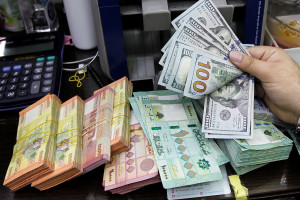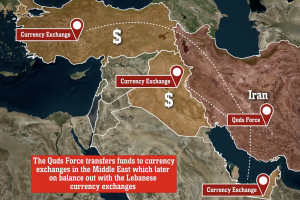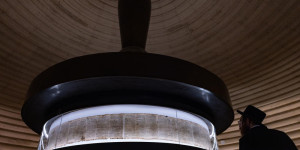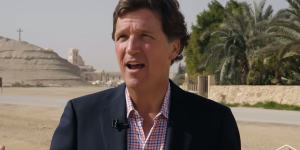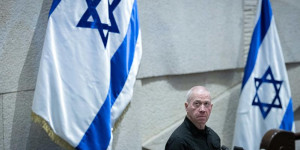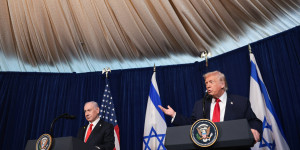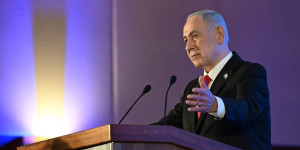Hezbollah's financial crisis deepens after Israel eliminates Iranian handlers, US demands disarmament
IDF killing of Quds Force operatives delivered crushing blows to Hezbollah
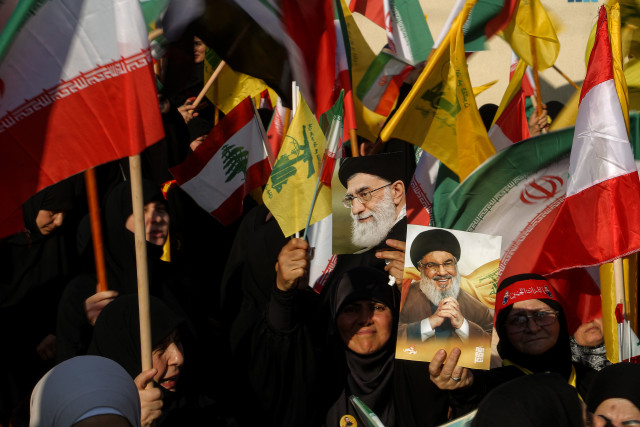
After being decimated in a war with Israel, losing its Syrian allies, and seeing its Iranian patrons humiliated, the Lebanese terror group Hezbollah is now facing a severe financial collapse, as well as political pressure, that could threaten its future as a dominant power in the country.
Several recent media reports indicate that Hezbollah has been going through a serious cash crunch and has even had to halt its support payments to members and their families who lost their homes in Israeli airstrikes – a move that risks alienating its most fervent followers.
One Lebanese website stated there was a “gradual collapse of the financing system that was the backbone of Hezbollah’s economic activity.”
The UK-based Saudi newspaper Asharq Al-Awsat cited residents of Hezbollah's Beirut stronghold, the Dahiyeh district, who complained that their lives had become an ongoing tragedy.
One resident said his house suffered serious damage, but he was told there were reconstruction plans in place, and that he would receive funds for compensation and building within a few months.
“All we received was rent for a period of only four months, $2,000, starting in January, and then the aid was completely stopped and we did not receive any financial assistance to restore what was destroyed,” he reported.
There are a variety of reasons for Hezbollah’s financial crisis, but all can be traced back to October 2023 and the decision of its slain leader, Secretary-General Hassan Nasrallah, to begin launching missile strikes at Israel in support of the Hamas terrorist organization in Gaza.
In the simmering conflict that escalated into an Israeli ground invasion in September 2024, when Nasrallah was eliminated, Hezbollah lost significant parts of its leadership, stockpiles of weapons and cash, as well as numerous components of its financial infrastructure.
However, Israel continued damaging Hezbollah’s financial channels after the eventual ceasefire through airstrikes.
The group’s weakening paved the way for a new government that seeks to re-establish the state’s control over the entire country and to disarm Hezbollah, pressuring it from within.
Last week, authorities seized $8.2 million that was meant for Hezbollah, according to Asharq Al-Awsat. The cash was found on three passengers arriving from Congo and Istanbul, who claimed they routinely transferred money for Lebanese businessmen operating in Africa.
Hezbollah reportedly took a 20% cut from money transfers arriving from abroad, using members and collaborators at the airport – many of whom were recently dismissed.
In December 2024, the Assad regime in Syria collapsed, depriving Hezbollah of its land routes through the country. The new Syrian regime has reportedly taken additional measures to crack down on smuggling routes and Hezbollah’s presence near the border.
Israel’s campaign against Iran, and the elimination of key Quds Force operatives in particular, has delivered the latest crushing blows to Hezbollah’s finances.
During strikes in Iran, the Israeli Air Force (IAF) eliminated Behnam Shahriyari, the commander of the Quds Force's Unit 190. Shahriyari “exclusively oversaw the mechanisms that enabled the transfer of hundreds of millions of dollars annually” from the Quds Force to its proxies, according to the IDF.
Another key figure recently eliminated was Mohammad Saeed Izadi, the commander of the Palestine Corps in the Quds Force. The Saudi Al Hadath channel reported that he was in Lebanon just two days before he was killed in Iran.
In addition to Hezbollah's financial troubles, Washington has ramped up pressure on the new government to impose its authority over the entirety of the state and to weaken Hezbollah’s grip.
Lebanon's Al-Jadeed news channel reported that U.S. Ambassador Lisa Johnson recently met with senior Lebanese government officials to urge them to respond to the American and international demands.
In addition, the “Committee of Five Ambassadors,” which includes representatives from the U.S., France, Saudi Arabia, Egypt and Qatar, is expected to meet ahead of the expected final Lebanese response to a broad proposal by U.S. envoy Tom Barrack.
Two weeks ago, Barrack presented the Lebanese government with a written roadmap, including a deadline of July 1 to respond to the outlined demands and conditions for reconstruction support.
According to Reuters, the six-page document centers on disarming Hezbollah and other terrorist groups, while also urging closer ties with Syria, and financial reforms.
The document calls for full disarmament by year’s end, paving the way for U.S. support in pressuring Israel to halt strikes on terror targets in Lebanon and to back reconstruction efforts in war-damaged areas.
Lebanese Foreign Minister Youssef Rajji stated this week, “We need to fulfill the conditions that the United States is asking of us. We are not in a position of strength to refuse or agree. We do not have the military or economic power to bargain.”

The All Israel News Staff is a team of journalists in Israel.
You might also like to read this:



